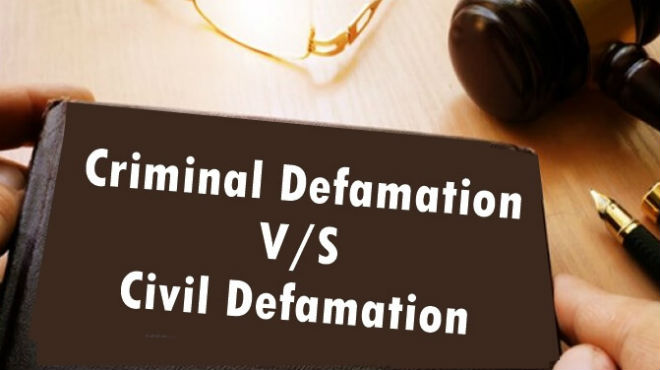AdVocate harshit Sachar | chamber no: 617 | district courts ludhiana | 2817 gurdev nagar ludhiana | ✆+91 7889228369
Difference Between Civil and Criminal Defamation in India
Understand the legal differences between civil and criminal defamation, their consequences, and remedies available in India.
CRIMINAL LAWCIVIL LAWS
Team Sachar Law Firm
8/11/20251 min read


Defamation means damaging a person’s reputation through false statements. In India, it can be addressed in two ways — civil and criminal.
Civil Defamation
Governed by tort law (common law principles).
Remedy: Monetary compensation for loss of reputation.
Standard of proof: Balance of probabilities.
Criminal Defamation
Governed by Sections 499–500 of the Indian Penal Code (IPC).
Punishment: Up to 2 years imprisonment, fine, or both.
Standard of proof: Beyond reasonable doubt.
Key differences:
Civil defamation seeks compensation; criminal defamation seeks punishment.
Civil cases are filed in civil courts; criminal cases are filed in magistrate courts.
Criminal proceedings can lead to arrest in certain circumstances.
Conclusion: Whether to file civil or criminal defamation depends on your goal — financial recovery or penal action. In some cases, both can be pursued simultaneously.
Services
Sachar Law Firm – Advocate, Lawyer, Attorney & Solicitor Services in India | Ludhiana, Punjab.
Expert legal advice across various practice areas - Civil, Criminal, Divorce and Matrimonial, Consumer and Corporate laws, Bail Matters, Property Contract Disputes, Insurance claim disputes, cyber Crime cases, Cheque bounce, Family Divisions, Arbitration. Bail Matters, Electricity Board Cases, Appeals before Session court Ludhiana, Marriage certificate, Court Marriage, Succession Certificate Accident Claim (MACT), NRI Legal Matters, NRI Property Matters.
“Get in Touch with Sachar Law Firm”
Quick Links
© 2025. All rights reserved.
Advocate Harshit SACHAR
Legal Blog
2817, 1st Floor , Gurdev Nagar, Ludhiana, Punjab -141001
Address: Office Cum Res:
Corporate Liquidation and Recovery Litigation
☎️ 0161 7965410
